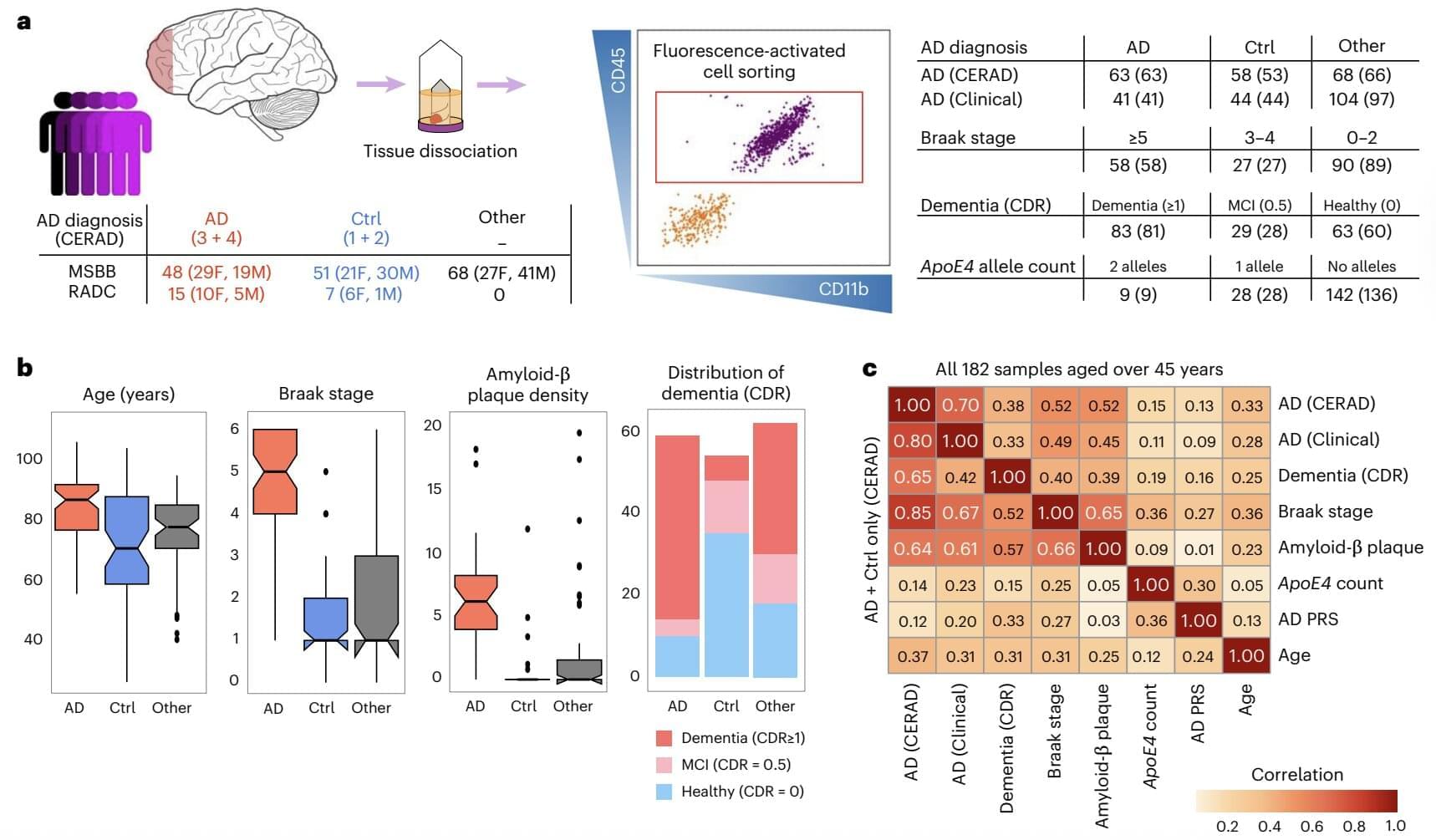Alzheimer’s disease (AD) is a debilitating neurodegenerative disorder that causes progressive memory loss and a decline in mental (i.e., cognitive) abilities. Statistics suggest that between 500,000 and 900,000 people are diagnosed with this disease every year, while several hundreds of thousands experience dementia or other aging-related cognitive decline.
While there are some available treatments designed to delay cognitive decline in individuals with mild or moderate AD symptoms, a cure for the disease has not yet been identified. A better understanding of the neural, genetic, cellular and molecular processes that contribute to the disease’s progression, as well as to neurodegeneration in general, could thus be highly valuable, as it could inform the future development of alternative treatments.
Past neuroscience research has identified the key role of microglia in AD. These are specialized immune cells that monitor the environment in the brain, clearing out damaged cells, debris and pathogens. The dysregulation of these cells has been linked to neurodegeneration and to the progression of AD.
